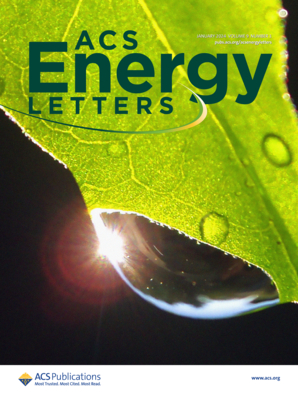Defective Engineering As a Promising Strategy for Advanced Aqueous Zn Ion Batteries
IF 19.3
1区 材料科学
Q1 CHEMISTRY, PHYSICAL
引用次数: 0
Abstract
Aqueous zinc ion batteries (ZIBs) have garnered substantial research interest owing to their utilization of aqueous electrolytes, high theoretical zinc capacity, economically viable and widely accessible zinc resources, and ease of material handling. However, several challenges remain, such as low capacity, unsatisfactory energy density, and poor stability, which necessitate further research. Recently, defective engineering has emerged as a promising strategy in the development of ZIBs. This Review highlights the recent advancements in employing defective engineering toward high performing aqueous ZIBs, detailing its implications on various cathode, anode, electrolyte additives, current collectors, and separators. We will also discuss methodologies to incorporate defects and elucidate the underlying mechanisms by which defective engineering enhances battery performance. Furthermore, we outline future research directions of defective engineering in the development of aqueous zinc ion batteries.

缺陷工程是先进水锌离子电池的一个有前途的策略
水锌离子电池(zbs)由于其利用水性电解质、高理论锌容量、经济可行和广泛可获得的锌资源以及易于材料处理而获得了大量的研究兴趣。然而,仍然存在一些挑战,如容量低、能量密度不理想和稳定性差,需要进一步的研究。近年来,缺陷工程已成为ZIBs发展的一种很有前途的策略。本文重点介绍了利用缺陷工程制备高性能水基ZIBs的最新进展,详细介绍了其对各种阴极、阳极、电解质添加剂、集流器和分离器的影响。我们还将讨论纳入缺陷的方法,并阐明缺陷工程提高电池性能的潜在机制。展望了锌离子水溶液电池缺陷工程的研究方向。
本文章由计算机程序翻译,如有差异,请以英文原文为准。
求助全文
约1分钟内获得全文
求助全文
来源期刊

ACS Energy Letters
Energy-Renewable Energy, Sustainability and the Environment
CiteScore
31.20
自引率
5.00%
发文量
469
审稿时长
1 months
期刊介绍:
ACS Energy Letters is a monthly journal that publishes papers reporting new scientific advances in energy research. The journal focuses on topics that are of interest to scientists working in the fundamental and applied sciences. Rapid publication is a central criterion for acceptance, and the journal is known for its quick publication times, with an average of 4-6 weeks from submission to web publication in As Soon As Publishable format.
ACS Energy Letters is ranked as the number one journal in the Web of Science Electrochemistry category. It also ranks within the top 10 journals for Physical Chemistry, Energy & Fuels, and Nanoscience & Nanotechnology.
The journal offers several types of articles, including Letters, Energy Express, Perspectives, Reviews, Editorials, Viewpoints and Energy Focus. Additionally, authors have the option to submit videos that summarize or support the information presented in a Perspective or Review article, which can be highlighted on the journal's website. ACS Energy Letters is abstracted and indexed in Chemical Abstracts Service/SciFinder, EBSCO-summon, PubMed, Web of Science, Scopus and Portico.
 求助内容:
求助内容: 应助结果提醒方式:
应助结果提醒方式:


